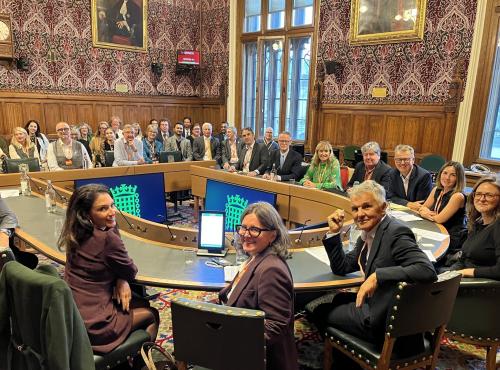Brief Budget Comment
In Summary
Ahead of announcing a series of new spending promises Chancellor Philip Hammond struck an upbeat note flagging forecasts from the Office for Budget Responsibility predicting “sustained real wage growth in each of the next five years". That aside the Chancellor saw it fit to provide a further £2bn for Brexit preparations, after yesterday warning a ‘No Deal Brexit’ would mean a new budget. Next year will also see a five year spending review to set post-Brexit spending priorities. The main recipients of the Chancellor’s ‘end to austerity’ budget have been Defence and Health with major announcements including:
- Extra £20.5bn for the NHS over the next five years
- Extra £1bn in defence spending to boost cyber capabilities
In the run-up to Parliament voting on a Brexit deal and a febrile atmosphere in Parliament, this was certainly one of the more political budgets of the last few years. A range of audiences had clearly been considered as the Chancellor announced:
- Personal allowances and higher rate threshold raised
- New UK digital services tax on revenues of tech giants from 2020
- Annual Investment Allowance increased from £200,000 to £1m for two years
- A new 50p coin to commemorate Brexit
Little of the money made its way to skills and FE however, although the big news is the slashing of apprenticeship fees for SMEs.
Employer contribution slashed to 5%
Co-investment model altered
Just four months after Anne Milton told the AELP conference that we should not expect an announcement on the co-investment model 'anytime soon,' we have a major announcement. The press coverage (including the sector press) so far has focused on what this means for small businesses, but it should also be noted that halving of the employer contribution from 10% to 5% will also apply to levy payers if they exceed their levy allocation, perhaps making this more likely. This follows on from the Chancellor's announcement at Conservative Party Conference that levy paying employers will be able to transfer up to 20% of their levy allocation to another registered employer, doubling the previous maximum. Given the previous indications that there would not be policy change in this area, spanning back to when the levy was first announced, there can be no doubt that this has been an dramatic couple of months in this area. There had been calls from within the sector for apprenticeship training costs to be fully subsidised by the government, but Anne Milton ruled this out just last month at conference, stating that she believed it was important that employers have a 'stake' in the apprenticeship; a compromise seems to have been reached.
'Extra Kit' for Schools
Schools in England will receive a one-off £400 million payment to buy "extra-kit". Declaring that it will help schools to "buy the little extras that they need", the Chancellor's comments will likely do little to appease the the frustrations, let alone help, cash-strapped headteachers who have been campaigning for better funding. The payment averages at £10,000 per primary school and £50,000 per secondary school.



